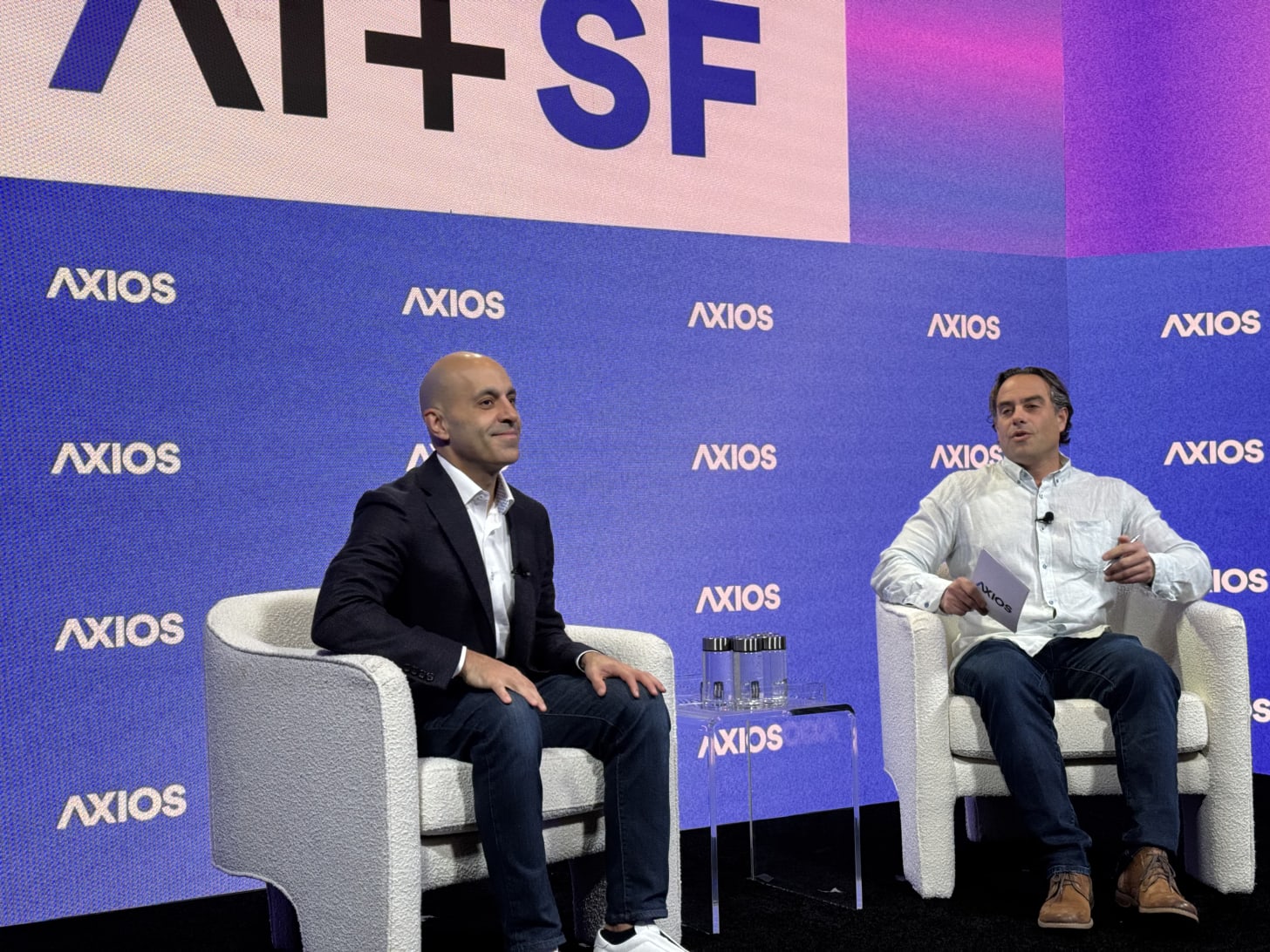Databricks’ $10 Billion Move and Ghodsis Lessons for Europe
"The ambition, the resources, the culture—it’s completely different. That is why I left Sweden.”
Databricks has raised a record-breaking $10 billion, securing its position as one of the most valuable AI companies globally. Swedish-Iranian CEO and co-founder Ali Ghodsi spoke about the move at the Axios + AI Summit in San Francisco, where SVNB had the opportunity to talk with him off-stage about Sweden.
For years, Databricks has been mentioned as a potential Silicon Valley IPO candidate. On Wednesday, however, it became public that the company had raised $10 billion in a J-funding round led by venture capital firm Thrive Capital.
“We weighed the options and decided to wait. This year’s market conditions—election uncertainty, inflation concerns—made an IPO less attractive,” Ali Ghodsi said.
Databricks now has a valuation of $62 billion.
The new money will be used for product development, acquisitions, and an expanded international presence, including recently established hubs in London and Singapore. It will also provide faster liquidity for employees with shares.
Asked if this means Databricks will not go public in 2025, Ghodsi clarified.
“An IPO is still possible next year, but we’re not rushing. Most of Databricks’ life will be as a public company, but for now, we focus on maintaining momentum and taking care of our employees.”
Looking ahead, he emphasized Databricks’ mission.
“We’ll continue to focus on data and AI, building tools that have a lasting impact on businesses and society. The opportunities are immense, and we’re just getting started.”
Challenges for Europe
“You can’t build Databricks in Sweden,” Ali Ghodsi says to SVNB off-stage.
Ghodsi, who fled Iran as a child and grew up in Sweden, sees hunger—the willingness to take risks and sacrifice—as a key driver of success.
“In Sweden and much of Europe, people have food, education, and stability. That’s great, but it also makes people comfortable. When you’re comfortable, you’re less likely to work 100-hour weeks or take the kind of massive risks needed to build transformative companies.”
For Ghodsi, the U.S. offers a contrasting environment where immigrants leave everything behind going all in.
“Here, nobody cares where you’re from; they care about what you can achieve. That’s why immigrants here lead companies like Microsoft and Google. In Europe, it’s different—immigrants aren’t made to feel like they belong. ”
Ghodsi also pointed to two additional European barriers: regulations and limited access to capital.
“In Europe, there’s this belief that the way to solve problems is more regulation, often aimed at blocking American companies like Google or Amazon. But you don’t win by stopping others; you win by creating something better. Europe needs more Spotifys, not more rules.”
The scarcity of concentrated capital in Europe further limits the ability to scale startups.
“Good luck raising $10 billion in Europe. The capital isn’t there, and when it is, it’s spread out.”
Reflecting on his own experience, Ghodsi described the difference between Sweden and Silicon Valley as transformative.
“I tried to build something in Sweden, but it didn’t work. Coming to the U.S. was like night and day. The ambition, the resources, the culture—it’s completely different. That is why I left Sweden.”
He acknowledges that Europe’s challenges are rooted in its long history.
“The U.S. is like a startup—constantly reinventing itself. With its thousands of years of history, Europe is much harder to change.”
Ghodsi added that the UK is an exception in Europe thanks to its unique openness to immigration and historical ties to countries like India.
Databricks provides a unified platform for managing and analyzing large volumes of data. Its tools integrate data engineering, machine learning, and AI to power everything from business forecasting to generative AI applications, enabling organizations to process, store, and gain insights from their data efficiently.




